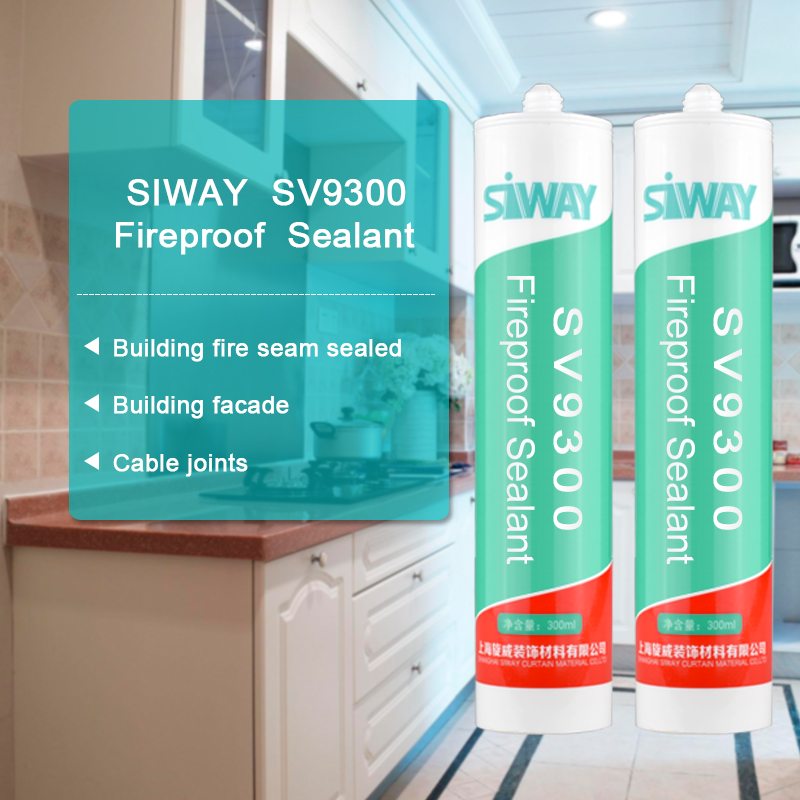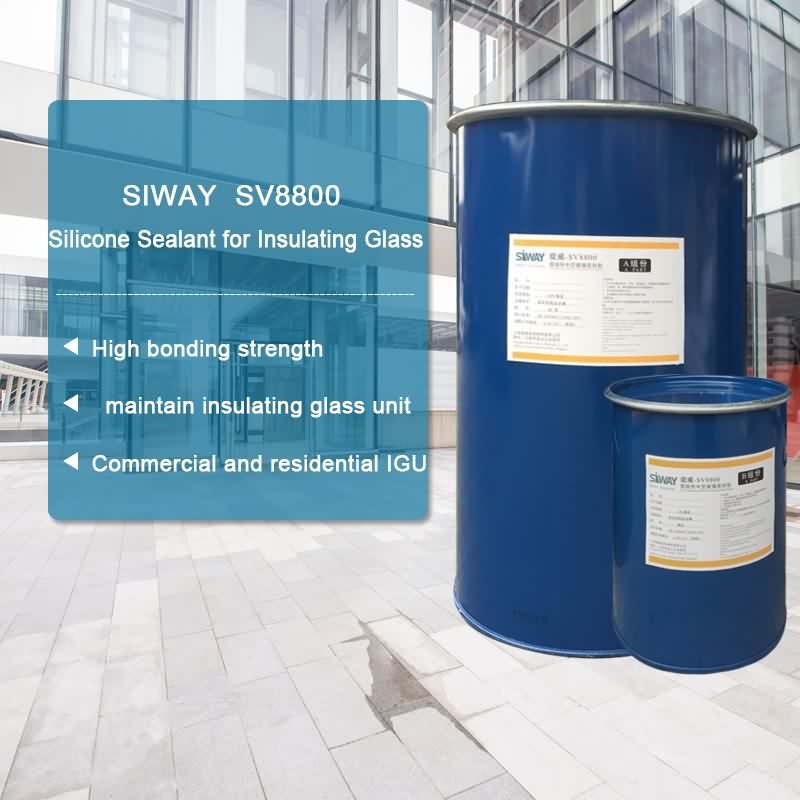Trending Products SV-9300 Fireproof silicone sealant for Leicester Importers
Short Description:
Description SV – 9300 Fire resistant silicone sealant is a one-component, neutral-curing silicone sealant exhibiting superior performance in applications where sealing openings in walls and floors are needed to control the spread of fire, smoke, toxic gasses, and water during fire conditions. Where to use It is an ideal material designed for use in fire-stop systems for through penetrations and joints. This product excels in applications where greater water resistance is required e.g. ...
We thinks what customers think, the urgency of urgency to act in the interests of a customer position of principle, allowing for better quality, lower processing costs, prices are more reasonable, won the new and old customers the support and affirmation for Trending Products SV-9300 Fireproof silicone sealant for Leicester Importers, we are seeking for extensive cooperation with honest customers, achieving a new cause of glory with customers and strategic partners.
Description
SV – 9300 Fire resistant silicone sealant is a one-component, neutral-curing silicone sealant exhibiting superior performance in applications where sealing openings in walls and floors are needed to control the spread of fire, smoke, toxic gasses, and water during fire conditions.
Where to use
It is an ideal material designed for use in fire-stop systems for through penetrations and joints. This product excels in applications where greater water resistance is required e.g. curtain wall, building facade, expansion/pipe and cable joints.
Key Features
1. 100% silicone
2. Excellent weatherproofing and waterproofing
3. Low gas transmission rate
4. With highly efficient redundant
Basic Application
1.Building fire seam sealed
2.Building façade
3.cable joints
Technical data sheet
| Test standard | Test project | Unit | value |
| Before curing——25℃,50%R.H. | |||
| GB13477 | Flow, sagging or vertical flow | mm | 0 |
| GB13477 | Operating time | min | 15 |
| GB13477 | surface drying time(25℃,50%R.H.) | min | 40-60 |
| Sealant curing speed and operating time will have different with different temperatures and temperature, high temperature and high humidity can make sealant curing speed faster, rather low temperature and low humidity are slower.21 days after curing——25℃,50%R.H. | |||
| GB/T 531.1-2008 | Durometer Hardness | Shore A | 20-60 |
| GB13477 | 60% elongation of cementation | no damaging | |
| GB13477 | Elongation limit | % | 120 |
| GB/T 24267 | Sealant level | 20HM | |
| GB/T 24267 | Fire prevention level | FV-0 | |
Certification
GB/T 24267-2009
Color
Black
Package
300ml in cartridge * 24 per box
Shelf life
12 months
Note
If you want the TDS or MSDS or other details, please contact with our sales person.
If you cannot drain your aquarium to repair a leak from the inside, and you need to work from the outside, you have to beat hydraulic pressure.
The way you can do it, is by patching from bottom (where your leak is) to top.
1) Use a 2″ tape (scotch / masking / duct / whatever). See the patch in my other video: https://www.youtube.com/watch?v=3HRAjfYTesQ
2) patch this tape with a coat or 2 of a plastic bag.
3) put a stripe of silicone (any kind – since it’s external). Now your “bandaid” is ready.
4) put this patch on your Leakage in a way that the dripping is chased up. You cannot completely seal since hydraulic pressure is stronger than silicone. But the silicone is strong enough to push the water flow 1″-2″ up. Just make sure you chase the leak Upwards – not downwards, and not side ways.
5) every 20 minutes or so, you can take of your patch (the plastic bag helps here), and put a new patch, 2″ higher up (repeat steps 1-4) with a small overlap between the previous and the new silicone, so that you continue chasing upwards. If you miss (leak goes in another direction, repeat on this section, till you get it up).
6) as you go upwards, at some point the hydraulic pressure will be low enough that your leakage stops completely. even if you are not lucky, once you reach the top water level, the water pressure is 0, and your leakage will be over.
My leak was at the bottom front left side, and I had to work up slowly against 15″ of water (about 40cm on a 50cm deep aquarium).
When I started this, I did’t know how it was going to turn out. In hindsight I would of course drain 1/3 of the water or 1/5 of the water – anything that is doable without taking out the fish (my initial constraint) or impacting the bio-equilibrium. Doing this would reduce pressure and essentially make it easier (it would take less stages of 2″ patching).
As a conclusion, I can say that in any case drain your aquarium as much as you can – it will help.
Then, if your leak is situated above the water level – work from the inside, using aquarium safe silicone, and if your leak is below that, use the method in this video.
As this was my first external repair it doesn’t look nice, and possibly I could have tried with less silicone, or maybe I could have trimmed it afterwards. However right now I cannot afford the headace of causing a new leak just for the sake of aesthetics.
https://www.furnacemanufacturer.net/ Silcarb has been in the field of manufacturing Silicon Carbide Heating Elements for the past three decades, with its plant located at BANGALORE, South India.
Silcarb having established itself as a quality supplier of Silicon carbide Heating elements over the past three decades, has now introduced a state-of-the-art technology furnaces for various applications.
Silcarb has specialized in manufacturing Furnaces for melting and holding of non-ferrous metals, various heat-treatment Furnaces and High Temperature Furnaces. Silcarb uses advanced materials and innovative engineering concepts in order to reduce energy consumption in any furnaces manufactured.


